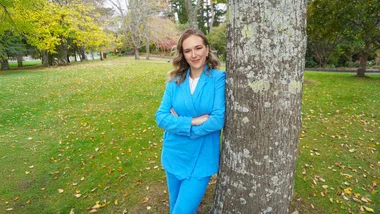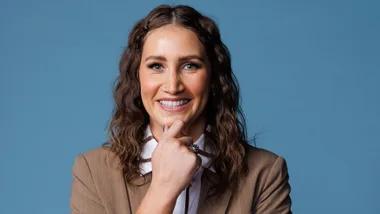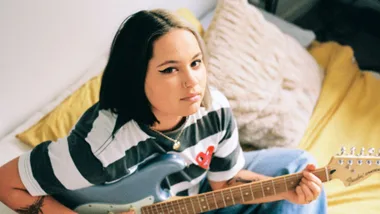As the youngest of five girls growing up in a busy, loving family in Colombo, Sri Lanka, Dharshana Ponnampalam often struggled to be heard. It’s one reason the manager of What’s Up, New Zealand’s long-running mental health helpline for young people, is determined all children and young adults in Aotearoa have someone who truly listens.
“In Sri Lankan culture, there’s a big emphasis on respecting people older than ourselves,” explains Dharshana.
“We have very specific ways of addressing siblings and elders, which for me, created a natural hierarchy. Even in a really loving upbringing, I didn’t always have a voice growing up.”
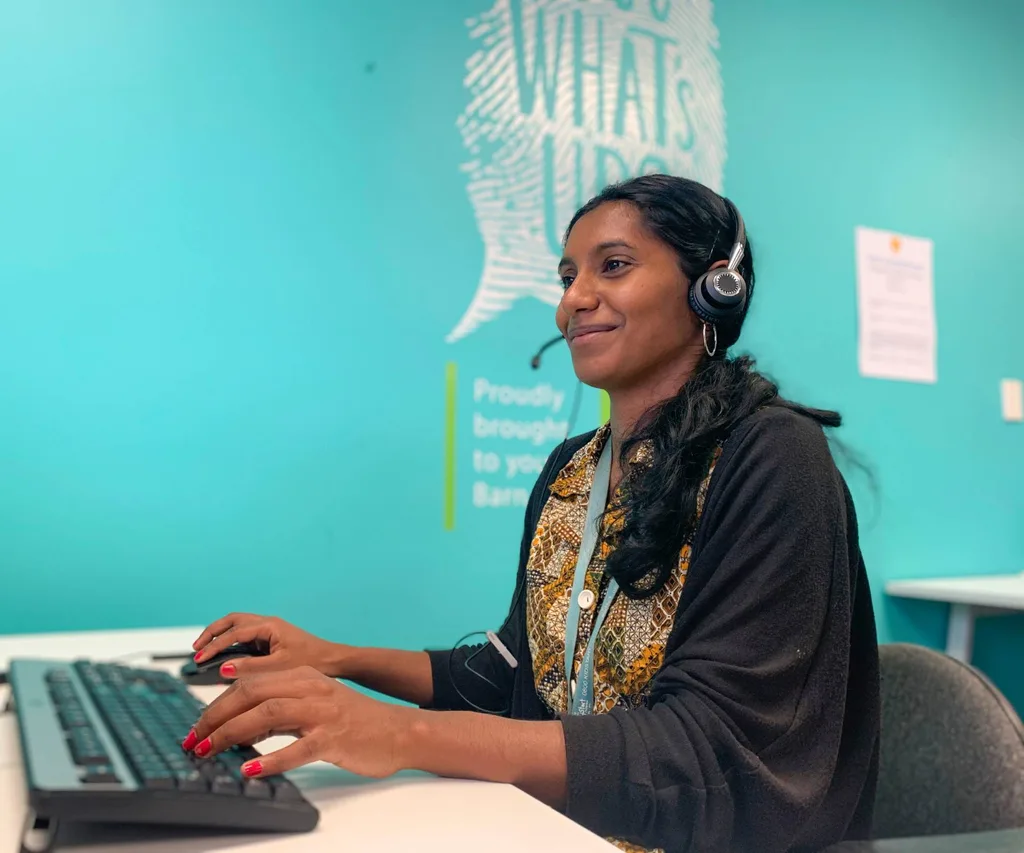
Early lessons shape her outlook
Those early childhood experiences helped to shape her outlook.
“When children are trying to be heard, they’re sometimes labelled noisy or naughty. But what they really need is to be noticed and listened to.”
After 15 years on the counselling team at What’s Up, spending the past year as manager, Dharshana, 37, says the big issues facing children who call the helpline have remained surprisingly consistent – from bullying, family relationships, school pressure, peer and romantic challenges, to self-harm and violence at home.
“The order changes, but the main topics don’t,” she says. “It can be hard for young people in the modern world. We don’t have the same village around us which once existed.”
After her family’s move to New Zealand, it was while she was a student at Auckland’s Mount Roskill Grammar that Dharshana experienced her own teenage challenges.
From personal struggles to career inspiration
“I made some great, diverse friendships at school but also encountered sexism, racism and inequity – things I had noticed in society at large since I was around eight years old,” she shares.
“At the same time, I built strong connections with my school counsellors, who showed me the difference it makes when someone listens. They inspired me to explore a career in mental health.”
Starting an honours degree in counselling and psychology, Dharshana began looking for work in the mental health sector, getting a job as a counsellor at What’s Up.
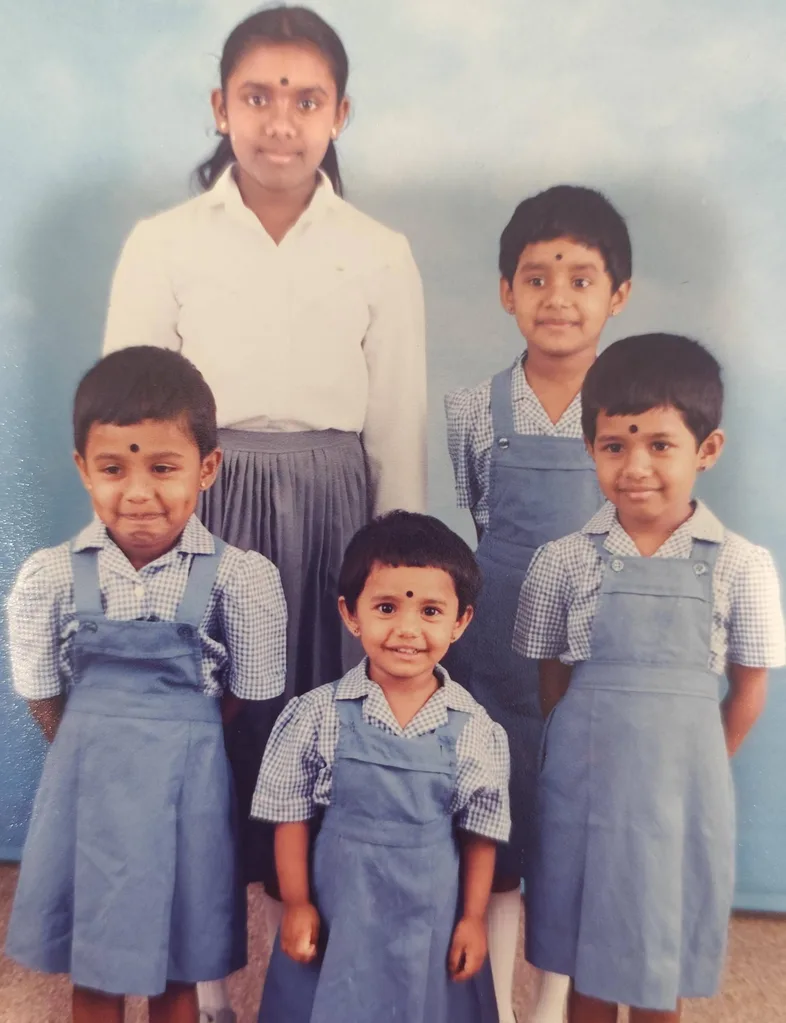
Falling in love with work
“I fell in love with it straightaway,” she says of the Barnardos-run service, which is free and confidential for five- to 19-year-olds.
While today Dharshana manages a large team of trained counsellors, who understand play and storytelling are often a child’s first language, she still gets on the phones when needed.
“Kids might call us from a bus stop, waiting for their parents, or just to chitchat and tell us about their day,” she reveals.
“Some call because they’re being cheeky and have cooked up a story with their friends and want to see how we’ll react.”
However, others start talking immediately about their big challenges.
“We meet all the tamariki and rangatahi where they’re at because building trust is the foundation of support,” she explains.
Building trust takes time
“For some of our kids, it might take two years of developing rapport before they’re finally ready to talk about their childhood trauma.”
Over the years, there have been many calls that have stayed with Dharshana, including a young man who phoned on his 21st birthday.
“He wanted to thank us for how kind we were when he used to call in and joke with his friends,” she says.
“He remembered us as being these nice adults, which was really touching. It’s not something all kids experience. Even in loving families, there can be poverty, family violence or grief in the mix, which can make that kind of presence difficult.”
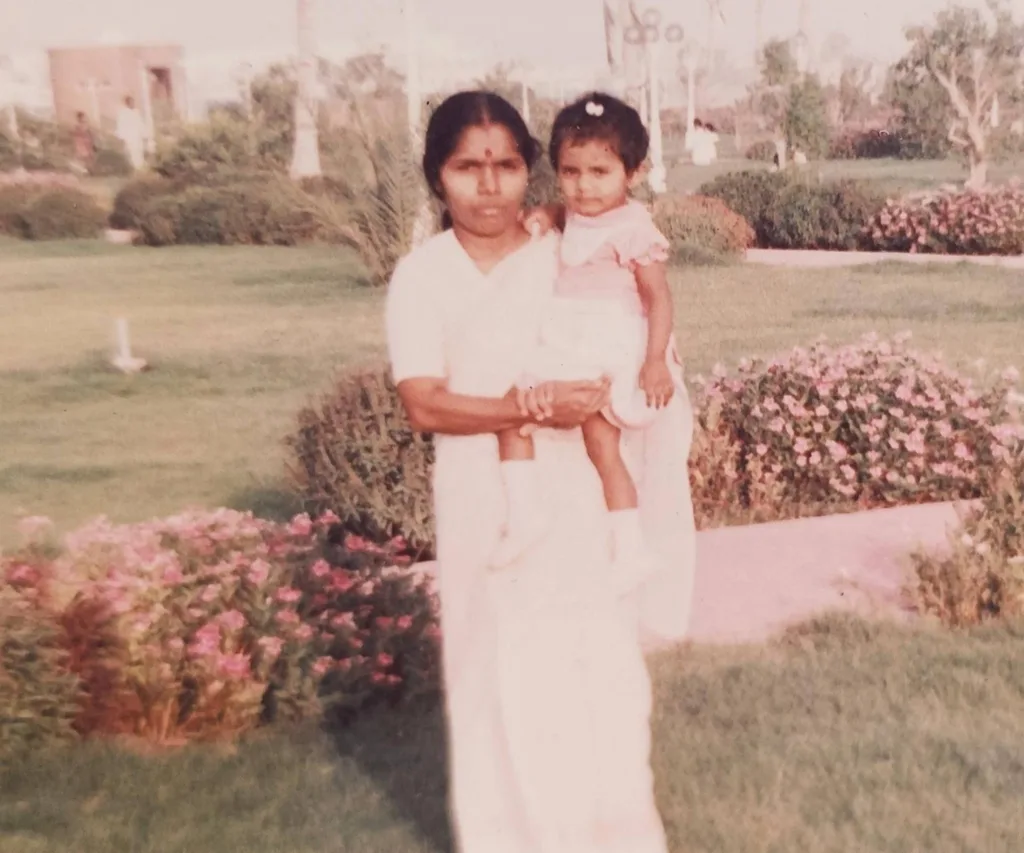
From pranks to real talk
She remembers the teenager who used to regularly prank the helpline, making up elaborate stories about a pet. Gradually, Dharshana noticed her slipping in real questions.
“One night, she called alone from her house and over time became a regular client, opening up about some significant issues she was facing,” she tells.
“Watching her journey from playful calls to receiving genuine support was powerful.”
Often the youngest kids connecting to the helpline are supported by their parents during the conversations, although some make contact independently too, such as a six-year-old boy who called
in regularly from a rural phone booth.
Finding a safe connection
“He decided to call after seeing our poster at the bus stop and had to balance on his tiptoes to reach the receiver,” she says.
“We were that safe connection for him.”
Despite the heartbreaking stories of family violence, poverty and trauma she regularly hears, Dharshana remains optimistic.
“The most beautiful part of this work is seeing progress,” she muses.
“It’s not always linear, but when a child who once cried every night calls to say they’re doing better or we have contributed to saving a life, it’s incredible. You know you’ve made a difference.”
This week is Mental Health Awareness Week. If your child is struggling and needs support, go to whatsup.co.nz or phone 0800 WHATSUP.
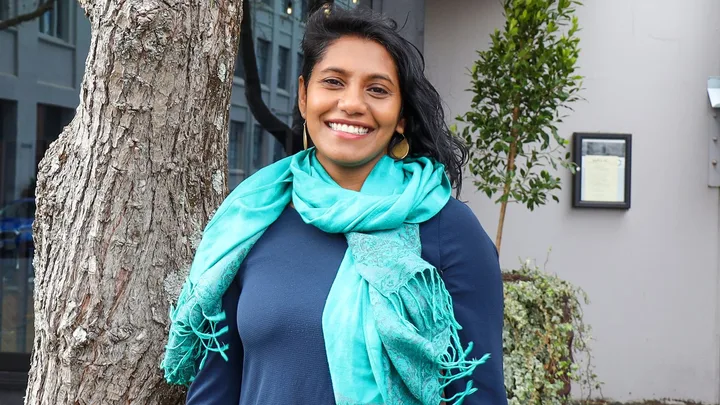 Photography: Elodie Berthe.
Photography: Elodie Berthe.
